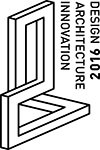An archaeological dig next to the Perthshire village of Dunning has revealed traces of human activity dating back 10,000 years. This included evidence of what experts believe is the earliest farming activity recorded in Scotland, and also remains of hunter-gathering activity dating back thousands of years before farming began.
The discoveries were made by archaeologists from the University of Glasgow, as part of the ten year, Strathearn Environs and Royal Forteviot (SERF) project. This year the project received an archaeology grant of £100,000 from Historic Environment Scotland to carry out geophysical survey, excavation, archival research and reporting.
As part of the excavation of a large series of pits, the archaeologists discovered faint plough marks dating back to the 38th century BC (3800 – 3700BC), likely made by a hand-held scratch plough known as an ard, which does not turn over the soil. Early Neolithic pottery (from almost 6000 years ago) was also found, with hundreds of pot shards recovered close to the plough marks.
Dr Kenneth Brophy from the University of Glasgow, said of this discovery: “Evidence for ploughing and fields in Neolithic Britain is incredibly rare and so the excavation of the ard marks at Wellhill is a very significant discovery that suggests a farming economy had taken hold in this location only a few generations after farming began in Britain around 4000BC. This is an amazing insight into the lives of Scotland’s first farmers”.
Further radiocarbon dating of the dig sites showed that the pits actually dated back even further, to the late 8th millennium BC, meaning that they provide evidence of the first Mesolithic events in the lowlands of Perth and Kinross.
Dr Rebecca Jones, Head of Archaeology for Historic Environment Scotland said:
These are very significant discoveries for archaeology in Scotland and even further afield, which is thanks mainly to the endeavours of the principle excavator, Dr Dene Wright, who recognised the potential of these astonishingly early settlements, which were then confirmed via radiocarbon dating. We have been delighted to support the research and field school in the area run by the University of Glasgow, and they have exceeded expectations in expanding our knowledge, achieving educational goals, and engaging visitors. They deserve a great deal of credit.”
Notes for editors:
- The SERF field school and project at the University of Glasgow receives grant-funding from Historic Scotland’s Archaeology Programme. The excavations at Wellhill have been led by Dr Kenneth Brophy and Dr Dene Wright from the Department of Archaeology, University of Glasgow.
About Historic Environment Scotland (HES)
- As of the 1st October 2015, Historic Scotland and RCAHMS came together to form a new lead public body charged with caring for, protecting and promoting the historic environment. The new body Historic Environment Scotland (HES) will lead on delivering Scotland’s first strategy for the historic environment, Our Place in Time.
- Historic Scotland is a sub brand of HES.
- View our press pack and keep up to date by registering for media release email alerts. If you wish to unsubscribe, please contact us.
Year of Innovation, Architecture and Design 2016
2016 is the Year of Innovation, Architecture and Design (IAD). Through a series of exciting events and activity, the year will showcase Scotland's position as an "innovation nation", its outstanding built heritage, and its thriving, internationally acclaimed creative industries sector. This is a Scottish Government initiative being led by VisitScotland and supported by a variety of partners.
Follow Historic Environment Scotland
Twitter: @HistEnvScot | @welovehistory
Facebook: @HistoricEnvScotland | @VisitHistoricScotland
For further information
Alan Bannon
Historic Environment Scotland Media Office
Direct Line: 0131 668 8588
Mobile: 07854 366 805
communications@hes.scot


